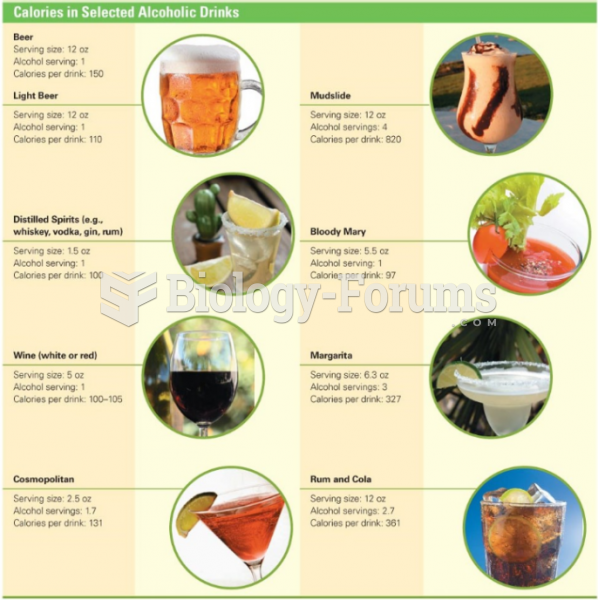This topic contains a solution. Click here to go to the answer
|
|
|
Did you know?
Eat fiber! A diet high in fiber can help lower cholesterol levels by as much as 10%.
Did you know?
Cyanide works by making the human body unable to use oxygen.
Did you know?
Your heart beats over 36 million times a year.
Did you know?
The familiar sounds of your heart are made by the heart's valves as they open and close.
Did you know?
More than 50% of American adults have oral herpes, which is commonly known as "cold sores" or "fever blisters." The herpes virus can be active on the skin surface without showing any signs or causing any symptoms.







